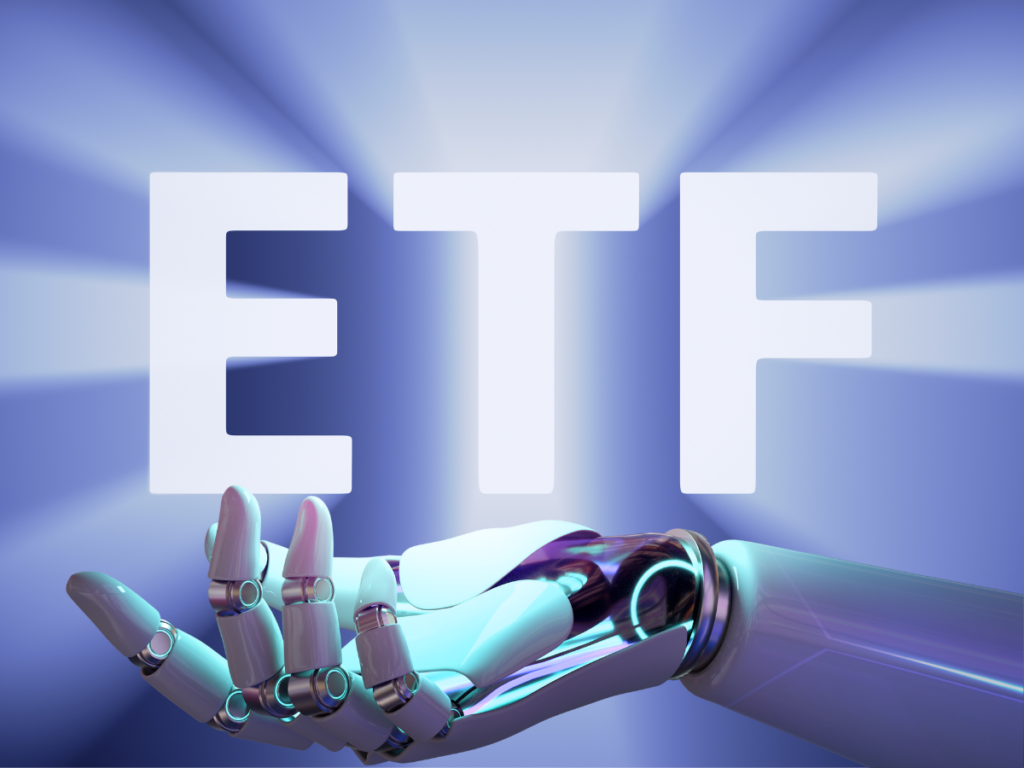Dive into the realm of AI investments, comparing ETFs that passively track AI indices with actively managed funds curated by experts to outperform benchmarks.
ETFs are available to investors who wish to employ artificial intelligence to invest in the stock market. These funds aim to mimic the performance and return of this industry and have exchange-traded shares.
AI-focused exchange-traded funds (ETFs) available on stock exchanges
Indeed, apart from exchange-traded funds (ETFs) whose returns passively track an artificial intelligence index, there are actively managed funds as well. In these, the fund manager chooses and oversees a specific portfolio of AI-related assets with the aim of surpassing the benchmark or index.
Naturally, there is an element of risk associated with actively managed funds; specifically, there is the decision of which assets to add to the portfolio and, more significantly, whether to upgrade them. ETFs that mimic AI indexes, on the other hand, prove to be marginally less risky.
The top AI ETFs for 2023, according to Forbes Advisor, are the Amundi MSCI Robotics & AI ESG Screened UCITS ETF, iShares Automation & Robotics UCITS ETF, Invesco EQQQ Nasdaq-100 UCITS ETF, and Xtrackers Artificial Intelligence and Big Data UCITS ETF 1Cm.
Additionally, L&G Artificial Intelligence UCITS ETF and WisdomTree Artificial Intelligence UCITS ETF USD are recommended by JustETF.
Remember that in addition to performance and volatility, technical information such as the number of holdings, yearly management expenses (TER), and volume of assets under management should be considered when selecting an ETF to invest in.
Performance-wise, the Nasdaq CTA AI & Robotics index, for instance, beat the S&P 500 and Nasdaq 100 index in 2020 and 2021 but lost more in 2022, as measured in percentage terms.
Therefore, it is by no means a given that artificial intelligence-related exchange-traded funds (ETFs) will yield higher returns than, say, stocks or the technology sector.
Even said, there is still a lot of unrealized development potential in the AI sector, with a small number of very successful companies (like Nvidia) leading the way.
Furthermore, indexes and managed portfolios cannot solely concentrate on AI due to the lack of listed firms that deal with this particular technology.
The market for artificial intelligence
As per a recent survey by McKinsey, the percentage of organizations claiming to use artificial intelligence has increased from 20 percent in 2017 to over 50 percent currently.
Since it is a valuable technology in a lot of sectors, more and more people are likely to adopt it.
Furthermore, Statista projects that by 2030, the market for AI services might reach $2 trillion due to continued expansion.
Still, it has to be acknowledged that this is a particularly dynamic sector of the technological industry, where things can change very quickly and dramatically. This means that when competition intensifies and new initiatives replace older ones, it becomes imperative to refresh one’s portfolios.
With artificial intelligence being a technology that rarely works alone, it is also evident from all of this why AI indexes actually do not refer simply to the distinctive and exclusive performance of the artificial intelligence sector.
Interactions with other technology domains, such robots or big data, are indispensable and the norm.
The features of money with AI
It is important to note that not all funds aim to mimic the performance of AI stocks.
To start, some focus on the stocks of firms that primarily deal with artificial intelligence, while others concentrate on U.S. large-caps that also deal with other things, like Microsoft and NVIDIA.
The latter appear to be more in demand by the market because they are founded on well-known businesses with substantial AI investment capacity.
However, other funds have significantly higher levels of risk along with much bigger potential gains due to their more speculative nature.
Conversely, some others concentrate on businesses that only employ artificial intelligence (AI) without creating or developing AI-related products or services.
In fact, a number of consultants advise concentrating specifically on the latter, i.e., choosing to prioritize other areas that are gaining from this new technology rather than taking excessive risks by being exposed to the ups and downs of this market.
By doing this, the potential become even more numerous, as some of the most promising applications of AI may be found in more conventional industries like industry or healthcare.
It should be noted, finally, that artificial intelligence-focused exchange-traded funds (ETFs) typically have a U.S. equity preponderance.












